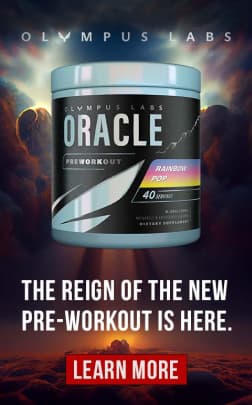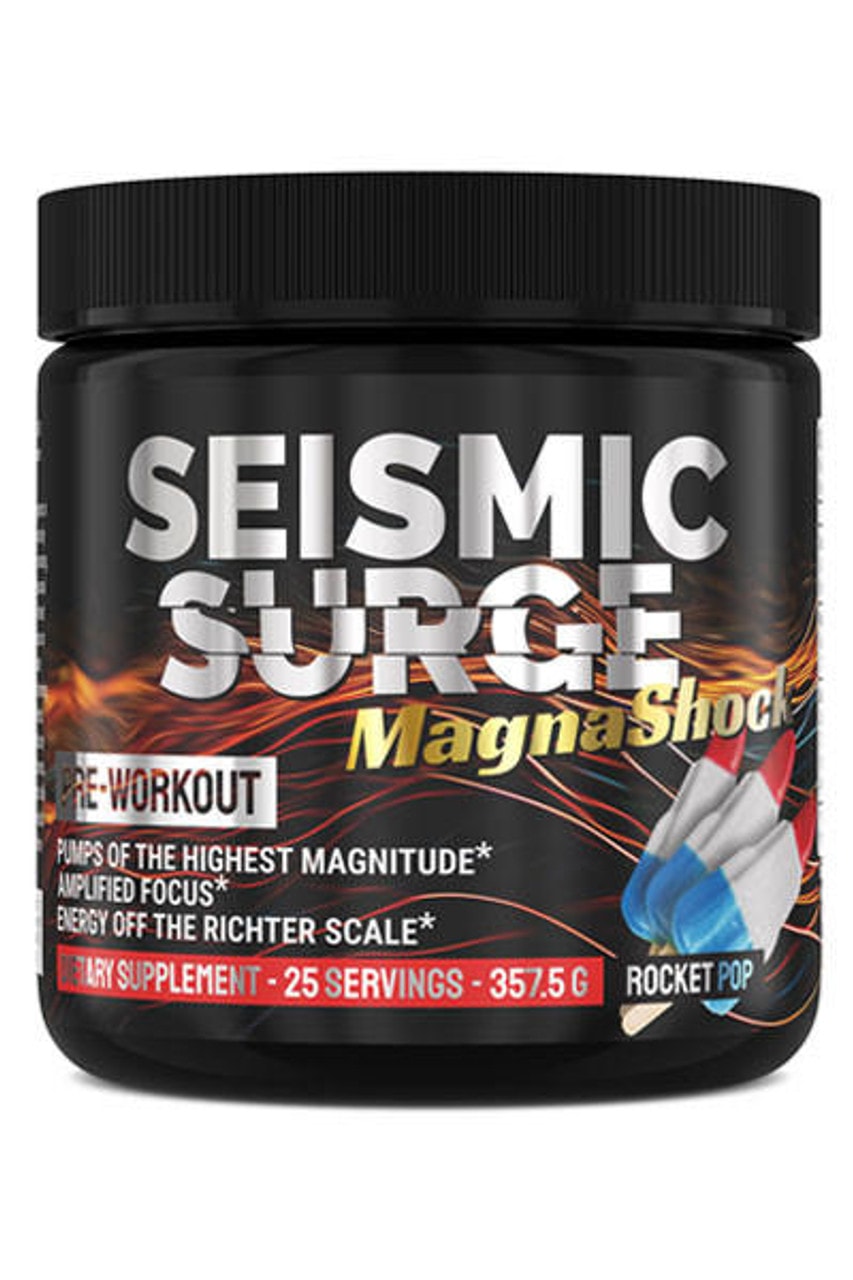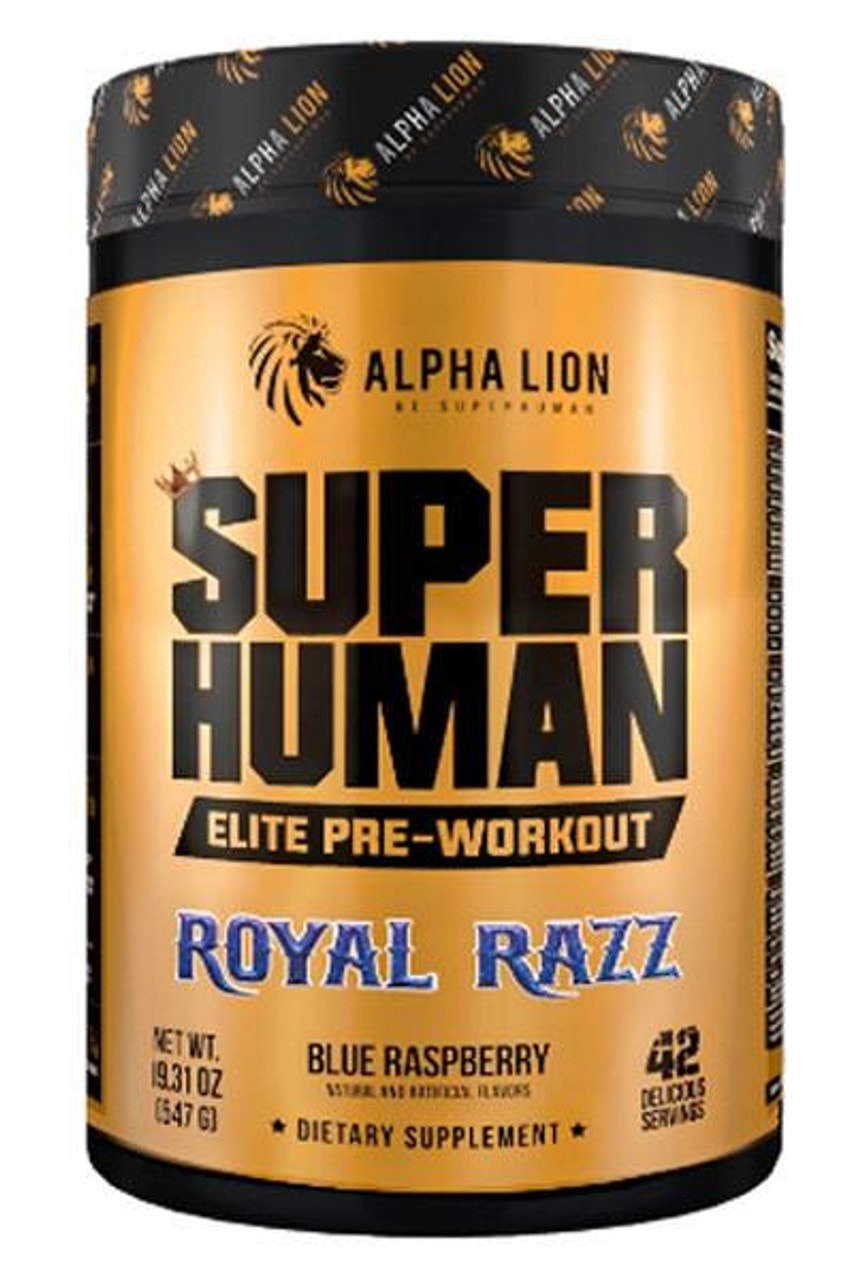When Is the Best Time to Go to the Gym
Posted by Leonard Shemtob on Jan 02, 2025
When is the best time to go to the gym? This is a question many people ask when they want to get the most out of their workouts. Some prefer mornings to start their day with energy, while others enjoy evening sessions to unwind after work.
The truth is, the best time to hit the gym depends on your goals, schedule, and body’s natural rhythm. In this article, we’ll explore the pros and cons of working out at different times of the day to help you find what works best for you.
[Related Article] Best Gym Supplements for Muscle, Strength, and Fat Loss
Short Summary
- There's no single "best" time for everyone: The ideal gym time depends on your personal preferences, schedule, and body clock.
- Morning workouts can boost energy and metabolism: Exercising early can set a positive tone for the day and may help with weight management.
- Afternoon workouts can be good for strength training: Body temperature and hormone levels are often optimal for building muscle in the afternoon.
- Evening workouts can help relieve stress: Hitting the gym after work can be a good way to unwind.
- The best time is the one that fits your lifestyle and keeps you motivated to exercise regularly.
- Boost Your Workout: Consider using Wild Thing, a top pre-workout supplement, to enhance your energy, focus, pumps, and overall performance before hitting the gym.
When is the Best Time to Go to the Gym: Short Answer
The best time to go to the gym depends on you. If you feel most energetic in the morning, that’s a great time to work out. If you’re stronger in the afternoon or evening, then those times might work better.
The key is to find when you feel your best and stick to that schedule. A consistent workout routine, even at a less "optimal" time, will yield far better results than sporadic workouts at the "perfect" time.
Does Timing Matter?
Timing can matter, but it’s not the only factor in having a good workout. Your body has different energy levels throughout the day. For some people, working out in the morning feels best, while others perform better in the afternoon or evening.
Here are some key points to consider:
- Energy Levels: Your energy can change throughout the day. Some people feel more awake and strong in the morning, while others perform better in the afternoon or evening. Choose a time when you feel your best.
- Gym Crowds: The gym can be busier at certain times, like after work or school. If you prefer a quieter environment, try going during off-peak hours.
- Workout Goals: Different times may work better for different types of workouts. For example, if you want to do cardio, you might feel more energized in the morning. For strength training, afternoons might be ideal.
However, the most important thing is to choose a time that works for you and that you can stick with regularly.
1. Going to the Gym in the Morning
Morning workouts have a lot of benefits. When you exercise early, you boost your energy for the rest of the day. It helps you wake up fully, and you start your day feeling more alert. Morning exercise can also improve your mood, thanks to the release of feel-good hormones like endorphins.
One big advantage of working out in the morning is that it’s easier to stick to a routine. By working out first thing, you don’t have to worry about skipping it later due to work, social plans, or other distractions. Plus, morning workouts can lead to better consistency, which is key to seeing progress.
However, it’s important to remember that not everyone is a “morning person,” and it might take some time to adjust. If you’re not used to waking up early, it can be challenging at first. But if you can make it a habit, morning workouts can set a positive tone for the rest of your day.
Pros:
- Boosts Energy: Morning workouts wake you up and give you more energy throughout the day.
- Improves Mood: Exercising in the morning helps release feel-good hormones, making you feel happier.
- Less Crowded Gyms: You'll often find fewer people at the gym early in the morning, meaning you won't have to wait for equipment.
- Better Focus: Morning exercise can clear your head and improve your concentration for work or school.
- Better Consistency: Morning workouts are easier to stick to because you get them done before other daily distractions.
- Faster Metabolism: Working out in the morning can help speed up your metabolism and help with weight management.
- Sense of Accomplishment: Getting your workout done first thing gives you a feeling of achievement that can boost your mood for the rest of the day.
- Improved Sleep: Regular morning exercise can help regulate your sleep cycle, making it easier to fall asleep at night.
Cons:
- Hard to Wake Up: Some people find it tough to get out of bed early enough to work out.
- Stiff Muscles: Your body might feel stiff in the morning, making it harder to do intense exercises right away.
- Less Strength: You may not feel as strong or as energetic in the morning, especially if you don't sleep well.
- Limited Time: If you have a busy morning schedule, you might not have enough time for a full workout.
- Need for a Good Warm-up: Your body is still waking up in the morning, so a proper warm-up is essential to prevent injuries.
2. Going to the Gym in the Afternoon
For some, mornings are too rushed, and evenings are reserved for relaxation. That leaves the afternoon – a time that can be surprisingly effective for workouts.
By this time, your body is fully awake and warmed up, which can make you feel stronger and more flexible. Your muscles are also well-rested and ready to handle more intense exercises, so you may be able to lift heavier weights or push yourself harder.
For many, the afternoon is the most productive part of the day. You’ve had your meals, so your body has enough fuel to perform at its best. It’s a great time to focus on both strength training and cardio because you’re not as tired as in the morning, and you’re not yet feeling the fatigue of a full day.
Pros:
- Better Performance: Your body is fully awake and has more energy, so you may be able to lift heavier weights and perform better.
- More Flexibility: Depending on your schedule, afternoons might offer more freedom to fit in longer or more varied workouts.
- Social Opportunities: Gyms are often busier in the afternoon, giving you more chances to meet friends or join group classes.
- Stress Buster: Hitting the gym after work or school can be a great way to let off steam and de-stress. Physical activity releases endorphins, which can improve your mood.
- More energy: After eating lunch, you’ll have more energy for a good workout.
Cons:
- Busy Gym (Depends): The afternoon is a peak time for many gyms, so it can be crowded, and you might have to wait for equipment.
- Time Constraints: If you have a busy schedule, it can be harder to fit in a workout in the afternoon.
- Post-Workout Slump: Some people feel tired after a midday workout, which can be inconvenient if you have other tasks to do.
- Meal Timing: You'll need to think about when you eat to avoid working out on a full stomach or feeling hungry during your session.
3. Going to the Gym in the Evening
For many, the evening provides the most convenient window for exercise. After work, school, or other daily commitments, the gym offers a chance to de-stress and focus on fitness.
By this time, your body has had a full day to warm up, and you may feel stronger and more energized than earlier in the day. This can be a great time to push yourself with more intense exercises or focus on heavier lifting.
In the evening, your body temperature is higher, which can help with flexibility and reduce the risk of injury. If you’ve had a busy day, exercising in the evening can also help relieve stress and clear your mind.
Pros:
- Stress Relief: Exercise is a great way to unwind after a stressful day at work or school. It can help clear your mind and improve your mood.
- Convenient Timing: For most people, evenings offer more flexibility in their schedules, making it easier to fit in a workout.
- Better performance: Your body is fully awake, and muscles are more flexible, which can lead to stronger workouts.
- Social Opportunity: Evening workouts can be a great way to socialize with friends or workout partners.
- Less Time Pressure: You don’t need to rush, giving you more time to focus on your workout.
Cons:
- Tiredness: After a long day, you might feel too tired or low on energy to work out.
- Crowded Gyms: Evening is a peak time for gyms, so it might be crowded, and you may have to wait for equipment.
- Possible Sleep Disruption: Exercising too close to bedtime can make it harder to fall asleep due to the release of endorphins and increased body temperature.
- Time constraints: Evening workouts might conflict with dinner plans, family time, or other evening activities.
4. Going to the Gym Late at Night
For some people, late-night workouts are the only time they can fit in exercise due to busy schedules. If you’re someone who prefers the quiet and solitude of the gym, going late at night could be a great option. The gym is usually very quiet, so you can focus better and have full access to all the equipment.
Pros:
- Empty gym: No crowds or waiting for equipment.
- Potential stress relief (for some individuals).
- More Focus: With fewer people around, you can concentrate better on your workout.
- Quiet environment: It’s a great time for people who prefer a peaceful workout without distractions.
- Flexibility: Late-night workouts are ideal for those with very busy schedules who can’t make it during the day.
Cons:
- Major sleep disruption: Difficulty falling asleep and poor sleep quality.
- Tiredness: After a long day, you might feel too tired to exercise, which can affect your workout performance.
- Limited Support: Fewer staff may be available late at night, which could be a concern if you need assistance or guidance.
- Safety concerns: Depending on where you live, working out late at night could feel less safe, especially if you’re walking or driving to the gym alone.
- Body Stiffness: You might feel stiffer in the morning after working out late, making it harder to get moving.
- Potential hormonal imbalances.
What the Science Says About Exercise Timing
1. About Morning Workouts
Some studies suggest that exercising before breakfast can increase fat-burning throughout the day. However, other research indicates that afternoon workouts might be more effective for reducing fat mass.
A study from August 2022 in Current Biology highlighted that after a full day of decision-making, the brain can get fatigued and seek easy, rewarding activities. Morning workouts, when your brain is "fresh," might make it easier to stick to your gym routine.
Some studies also suggest that exercising late at night could affect sleep. Exercise increases your heart rate and body temperature, which can make it harder to fall asleep.
A study found that exercising in the morning, around 7 a.m., can lead to better sleep quality compared to evening workouts. However, some people find that evening exercise helps them sleep better. It’s highly individual.
2. About Afternoon Workouts
Research from December 2020 in Physiology shows that muscle strength is often highest in the late afternoon, between 4 p.m. and 8 p.m. A study from February 2023 in Nature Communications found that people who exercised in the afternoon had a lower risk of early death compared to those who exercised in the morning or evening. This suggests that afternoon workouts can have long-term health benefits.
3. About Evening Workouts
Research shows that endurance performance can improve significantly in the evening. One study found that the time to exhaustion during endurance exercises was 20% longer in the evening compared to the morning.
Furthermore, maximal oxygen uptake (VO2) was 4% higher in the evening, and anaerobic capacity was 7% greater. Muscles and joints are also up to 20% more flexible at night, reducing the risk of injury.
Additionally, oxygen uptake kinetics are faster in the evening, meaning your body uses resources more efficiently. While some studies warn that late-night workouts could disrupt sleep, one study found that those who lifted weights in the evening reported better quality sleep than those who worked out in the morning. So, whether evening workouts affect your sleep is personal and can vary.
What Time is the Gym Least Busy?
If you prefer a quieter gym experience, knowing when the gym is least busy can help you plan your workouts. Here are some general guidelines on the best times to go:
- Early Morning: Many people go to the gym early in the morning before work or school. If you arrive right when the gym opens, you may find it less crowded. This is usually between 5 AM and 7 AM.
- Mid-Morning: After the morning rush, gyms tend to be quieter from around 9 AM to 11 AM. This is a good time to work out if you can fit it into your schedule.
- Afternoon: The hours between 1 PM and 4 PM are often less busy. Many people are at work or school during this time, making it a great opportunity for a peaceful workout.
- Late Evening: After dinner, around 8 PM to 10 PM, gyms can be less crowded as well. Some people prefer to work out later in the evening, so this time can vary depending on your gym's location and hours.
Generally Busy Times:
- Early Mornings (6 am - 9 am): Many people try to squeeze in a workout before starting their workday, making this a peak time.
- Lunchtime (12 pm - 1 pm): Some people use their lunch break to exercise, leading to a midday rush.
- Early Evenings (5 pm - 7 pm): This is typically the busiest time at most gyms, as people head there after work or school.
Other Factors to Consider:
- Day of the Week: Mondays are often busier than other weekdays as people try to start their week strong. Weekends can vary; Saturday mornings can be busy, while Sunday afternoons are often quieter.
- Gym Location and Type: Gyms located in business districts might be busier during lunch and after work, while gyms in residential areas might have more consistent traffic throughout the day. Smaller, specialized gyms might have different peak times based on class schedules.
- Time of Year: Gyms tend to be busier in January (due to New Year's resolutions) and may also see increased traffic before summer as people try to get in shape for warmer weather.
Keep in mind that the exact times may vary depending on your gym's location and hours. If you’re unsure, ask the staff or observe the gym’s traffic patterns over a few days.
Factors That Influence Your Best Gym Time
As we've discussed, there's no single "best" time to go to the gym that works for everyone. Several personal factors play a role in determining what's optimal for you. Here are the key things to consider:
- Your Daily Schedule: This is often the biggest factor. Your work or school hours, family commitments, and other appointments will dictate when you have free time to exercise. Prioritize finding a time that fits consistently into your existing routine.
- Your Natural Body Clock (Circadian Rhythm): Some people are naturally morning people (larks), while others are night owls. Your natural inclination towards being more alert and energetic at certain times of the day can influence your workout performance and enjoyment.
- Energy Levels: Everyone feels energetic at different times. Some people are morning people, full of energy when they wake up, while others perform better later in the day. Find the time when you feel the strongest and most motivated.
- Your Fitness Goals: Different workout goals might benefit from different times of day. For example, some research suggests that afternoon workouts might be better for strength training, while morning workouts might be more effective for fat burning (though the evidence is mixed).
- Gym Crowds: If you want a quieter gym experience, avoid peak hours like early mornings (before work) or evenings (after work). Mid-morning or late-night sessions are often less crowded.
- Sleep Patterns: If you’re a morning person, early workouts might work well for you. If you’re a night owl, evening or late-night workouts could be a better fit.
- Your Personal Preferences: Ultimately, the best time to work out is the time you enjoy the most and are most likely to stick to. If you dread morning workouts, forcing yourself to go early won't be sustainable.
How to Choose the Best Time to Go to the Gym
Now that we've covered all the factors, let's talk about how to actually choose the best time for you to work out. Here's a step-by-step approach:
- Assess Your Schedule: Take a look at your weekly schedule and identify realistic time slots where you can consistently fit in a workout.
- Tune into Your Body Clock: Pay attention to when you naturally feel most energetic and alert throughout the day. Are you a morning person, a night owl, or somewhere in between?
- Consider Your Workout Goals: While the timing might not drastically change your results, consider if your goals align better with certain times. If your primary goal is building strength, you might find afternoon workouts more beneficial. If it's general fitness or weight management, consistency is more important than specific timing.
- Think About Gym Crowds: If you prefer a quieter workout environment, try to go during off-peak hours.
- Test Different Times: Try working out at different times of the day for a week or two. See when you feel the best and perform the strongest.
- Listen to Your Body: Pay attention to how your body responds to exercise at different times of day. If you consistently feel sluggish or unmotivated at a particular time, it might not be the best fit for you.
Best Pre-Workouts to Maximize Your Results at the Gym
1. Wild Thing by Assault Labs
Wild Thing is a pre-workout supplement with amino acids, creatine, and nootropics to support muscle performance, focus, and energy. Its caffeine blend provides both an immediate boost and sustained release to fuel your workout from start to finish.
Key Benefits
- It increases your energy levels.
- It helps enhance your focus.
- It boosts your strength.
- It improves your muscle pumps.
- It improves your mood and overall cognitive function.
- It reduces muscle fatigue.
- It accelerates your muscle recovery.
- It improves you overall exercise performance.
Key Ingredients
- DiCitrulline Malate/Infinergy®
- Beta-Alanine
- Alpha-Glyceryl Phosphoryl Choline
- Agmatine Sulfate
- Creatine Anhydrous
- L-Glutamine
- Choline Bitartrate
- Caffeine Anhydrous
- L-Tyrosine
- L-Norvaline
- ZumXR®
- Huperzine A
- Infinergy®
- Cocoabuterol®
- Thinkamine®
Customer Reviews
 Best preworkout I have ever had
Best preworkout I have ever had
“I have tried almost every pre workout out there and this is seriously the best one. I don't generally write reviews but I had to for this one. Buy this stuff and try it!!”
-Perry
 Great boost of energy
Great boost of energy
“This product gives me incredible focus and energy without the jitters.”
-Lostboy4028
 Wild thing
Wild thing
“Best pre-workout I've ever had. My pumps are greater. Can lift heavier up to you 15 pounds heavier. This product is well worth every cent.”
-Ernesto
2. Seismic Surge by Hard Rock Supplements
Seismic Surge is formulated to support strength, stamina, and energy during intense workouts. Designed for advanced fitness enthusiasts, it aims to help overcome plateaus and push limits effectively.
Key Benefits
- It boosts your energy levels.
- It enhances your muscle pumps.
- It improves your muscle endurance.
- It improves your mood.
- It enhances your focus and overall concentration.
- It increases your metabolism.
- It helps improve your strength.
- It speeds up your muscle recovery.
Key Ingredients
- Beta-Alanine
- Caffeine Anhydrous
- Alpha Yohimbine Hydrochloride
- 1,3,7 Trimethylxanthine (Delayed Caffeine)
- Theobromine
- Gamma-Aminobutyric Acid
- L-Citrulline Malate 2:1
Customer Reviews
 Awesome
Awesome
"This stuff works better than advertised"
-BigDaddy
 Great Product
Great Product
"Seismic Surge best pre workout I have taking in last 30 years."
-Sarge
 One of the best
One of the best
“Energy is extremely high focus is great, I workout before work and the energy last well into my work day”
-Rednek
3. Wrecked Enraged by Huge Supplements
Wrecked Enraged is a pre-workout supplement designed to enhance workout performance. This formulation combines scientifically proven ingredients to provide a boost in energy, focus, and endurance, helping users push through intense training sessions.
Key Benefits
- This pre-workout increases your energy levels.
- It enhances your mental focus and clarity.
- It improves your endurance and stamina.
- It speeds up your recovery.
- It boosts your muscle pumps and vascularity.
Key Ingredients
- Beta-Alanine
- Alpha GPC 50%
- Caffeine Anhydrous
- Di-Caffeine Malate
- Caffeine Citrate
- Halostachine
- Huperzine A 1%
- Black Pepper Fruit Extract 95%
4. Alpha Lion SuperHuman Elite Pre Workout
Alpha Lion SuperHuman Elite Pre-Workout is designed to enhance energy, focus, and performance during workouts. This formula combines over 20 active ingredients aimed at supporting intense fitness sessions.
Key Benefits
- This pre-workout provided a quick and sustained energy boost for your workout.
- It enhances your focus.
- It supports your muscle pumps.
- It improves your endurance.
- It supports your hydration.
- It promotes heart health.
- It boosts your mood and stress management.
Key Ingredients
- Vitamin B Complex
- L-Citrulline
- Beta-Alanine
- Caffeine Anhydrous and Extended Release Caffeine
- L-Taurine
- Juniper Berry Extract
- Glycerol Powder (as ElectroPrime®)
- Citicoline
- DMAE
- Theobromine
- Huperzine A
5. Pandamic Extreme Pre-Workout by Panda Supplements
Pandamic Extreme Pre Workout is formulated to enhance workout performance. It contains 400 mg of Alpha GPC for improved mental focus and 9 g of L-Citrulline Malate, which may promote better muscle pumps.
This supplement also includes 350 mg of caffeine to provide a significant energy boost during workouts. Additionally, it features 50 mg of AstraGin®, which is intended to enhance the absorption and effectiveness of the other ingredients.
Key Benefits
- It is formulated for intense and demanding workouts.
- It boosts your focus and mental clarity.
- It increases energy levels.
- It increases your blood flow.
- It enhances your muscle pumps.
- It promotes faster muscle recovery and nutrient absorption.
- It reduces muscle fatigue.
Key Ingredients
Final Verdict
In conclusion, there's no single "best" time to hit the gym that applies to everyone. While research offers some insights into the potential benefits of exercising at different times of day, individual factors like your schedule, body clock, preferences, and workout goals play the most significant role.
Morning workouts can jumpstart your day, improve consistency, and may help with fat burning. Afternoon and evening sessions often align with peak strength and energy levels, making them ideal for performance-focused workouts.
Ultimately, the best time to go to the gym is a personal decision. What works for one person might not work for another.
We encourage you to consider the factors discussed in this article, experiment with different workout times, and pay attention to how your body responds. The key is to find a time that you can consistently stick to and that allows you to enjoy your workouts.
Written and Sponsored by Leonard Shemtob
Leonard Shemtob is President of Strong Supplements and a published author. Leonard has been in the supplement space for over 20 years, specializing in fitness supplements and nutrition. Leonard appears on many podcasts, written over 100 articles about supplements and has studied nutrition, supplementation and bodybuilding.
Leonard's articles have been published in many top publications around the web. Leonard enjoys weight training, playing basketball and yoga, and also enjoys hiking. In his free time he studies and works on improving himself. For more detailed information, visit his official blog.
FAQs: Best Time to Go to the Gym
A: Yes, morning workouts may be better for weight loss, while afternoon or evening workouts can be more effective for building strength and muscle.

- https://www.mayoclinichealthsystem.org/hometown-health/speaking-of-health/best-time-of-day-for-your-workout
- https://avecsport.com/blog/when-is-the-best-time-to-go-to-the-gym
- https://www.centreofexcellence.com/best-time-to-go-to-the-gym/
- https://marathonhandbook.com/when-is-the-best-time-to-go-to-the-gym/
- https://health.clevelandclinic.org/does-it-matter-to-your-heart-or-otherwise-what-time-of-day-you-exercise
- https://www.alltimefitness.ca/best-time-to-go-to-the-gym/






